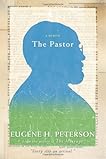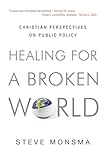Thanks to the generosity of friends, Marcie and I saw the new production of
Les Misérables last Tuesday night. One of the first scenes reminded me of a topic that I've been thinking through a bit lately, so I thought this was as good an opportunity as any to consider it.
In the second (or third) scene, the main character, Jean Valjean, has been paroled after spending 19 years serving time, chained to a galley ship, for stealing a loaf of bread. He finds work as a field-hand, but the foreman interrupts his labor and dismisses him early (because of his status as an ex-convict). The foreman says, "I will pay you for the work you have given" but only gives him half-pay. When Valjean protests the injustice of this shortage of pay, an argument and scuffle ensues. Toward the end, another worker comments, "why should you receive the same as an honest man like me?"
Keeping that in mind, let's jump back to a couple of weeks ago: Michael Vick, quarterback for the Philadelphia Eagles, had just signed a $100 million contract, and an acquaintance of mine was ranting on Facebook about how wrong this is/was. His point was simply this: no one who did what Vick did should be favored with such a wealthy deal.
In case you don't know, Michael Vick (at that time the quarterback for the Atlanta Falcons, and one of the presumed emerging stars of the National Football League) was arrested in 2007 for being involved in the operation of an inter-state dogfighting ring; he pleaded guilty to both state and federal charges, and was sentenced to 23 months in maximum security prison, which he served 21 months of (and was released early for good behavior at the discretion of the court).
My friend's rant was based on these facts. No dog-fighter should
ever be allowed to work in the NFL again, he opined. Based on some of the comments his post received, it was clear to me that many believed he shouldn't be allowed to hold any job of substance or worth, let alone garner a lucrative contract like the one he recently signed.
Mr. Vick is Jean Valjean in our modern day. Not because his sentence didn't fit the crime— the ordinary and expected penalty for the charges Vick faced was apparently between 8 months and five years, and Vick was pretty well near the middle of that— but because, upon his release, there is no prevailing sense of justice served for his crimes.
By definition, "justice" is that a penalty is waged for a crime that is understood to be fair and right "payment" for that crime. That is, either there is an understood penalty that everyone receives for the committing of certain crimes, and that penalty is meted out; Or, there is a trusted system by which each crime is assessed and (based on the crime, as well as precedent from previous similar crimes) a penalty is assigned to it on a case-by-case basis.
When I was in seminary, Dr. Dan Doriani suggested to our class once that Exodus 22:4 is an example of perfect justice; regarding when a man steals an ox or a sheep, "If the stolen animal is found alive in his possession—whether ox or donkey or sheep—he must pay back double." Dr. Doriani explained thus: a man who has stolen a sheep to keep for himself (i.e., it is found alive) must give back what he took (one sheep) as well as forfeit from his own possession what he stood to gain (a second sheep). Perfect justice.
In our country, we have a justice system like I described above. By constitutional right, everyone who is charged with a crime is a) presumed innocent until proven guilty; b) has a right to have their case tried in court; c) has the right of the decision of their guilt or innocence determined by a panel of jurors; and d) must be believed by those jurors to be guilty beyond reasonable doubt. This is not a perfect system, and there are a lot of mistakes made (witness the release of the "Memphis Three" as perhaps only the most recent example). But it is our system, and the one both established by our constitutional government and agreed-upon by us.
But when we have a case like Michael Vick's, many of us are willing and ready to ignore that system completely. When my friend posted his Facebook tirade, I commented, "Wait a minute. He served his time, and fulfilled what justice required for his crimes. (In fact, it's generally agreed he got a harsher sentence because of his celebrity status-- to 'make an example of him'.) Now he's as innocent as you or me. If not, then justice means nothing."* I confess I wasn't too surprised when another commenter offered in response, "Yeah, I'm more an eye for an eye kind of guy."
I didn't bite (unless you count this blog post). But had I, I might have said: first, no you're not. No one is, consistently. Second, you should hope the Assistant Prosecutor trying your next traffic ticket, or the insurance adjustor assessing your next wreck, doesn't find this Facebook post of yours. And third, if this keeps up we're all in trouble.
Why the last comment? Because the erosion of trust in our justice system is a huge step on the path toward one of two likely ends: either anarchy, where no one follows any order, or a vigilante state, which eventually amounts to totalitarian rule.
We're already on the way. The manner with which our society treats sex offenders, for example, speaks to the general doubt and mistrust of our justice system. The response to the exoneration of Casey Anthony in Florida does, too. (Once again on Facebook, I lost count of how many people I knew who were convinced that their understanding of that case, by way of the coverage on Court TV, was clearly better and more objective than the jurors or actual court!) If the response to the Casey Anthony case is any measure, it looks like the United States will prefer the vigilante/totalitarian path.
Or we could start thinking and acting with greater consistency. If the length of sentencing and/or rate of recidivism of sex offenders is wrong, then there is room for changes in the system to accommodate those; the solution isn't, however, that we ignore the fundamental ideas of justice because of those. And we need to quit believing that our "armchair juror" pseudo-participation in the process counts as much as we think it does.
What is justice to you? Does it mean anything? If so, it must (by definition) mean that objectively and consistently. Otherwise, we really are in trouble.
*I was tempted to add to my comment, but refrained, something regarding the fact that, at the same time Mr. Vick was coming under fire for even being allowed back into the NFL, another prominent quarterback was facing several accusations of sexual assault; yet by and large, the media focus was on Mr. Vick's dogfighting (for which he had just completed the sentence assigned to him by the courts) instead of the under-the-table deals that were alleged to be going on to keep the other guy from having to deal with the possibility that he may be a serial-abuser of women.
 Water for Elephants by Sara Gruen
Water for Elephants by Sara Gruen Letters to Steve: Inside the E-mail Inbox of Apple's Steve Jobs by Mark Milian
Letters to Steve: Inside the E-mail Inbox of Apple's Steve Jobs by Mark Milian






